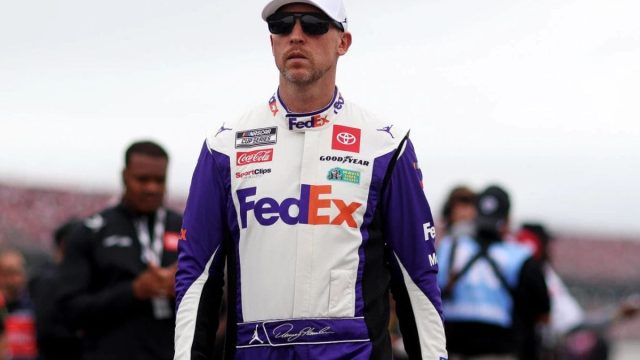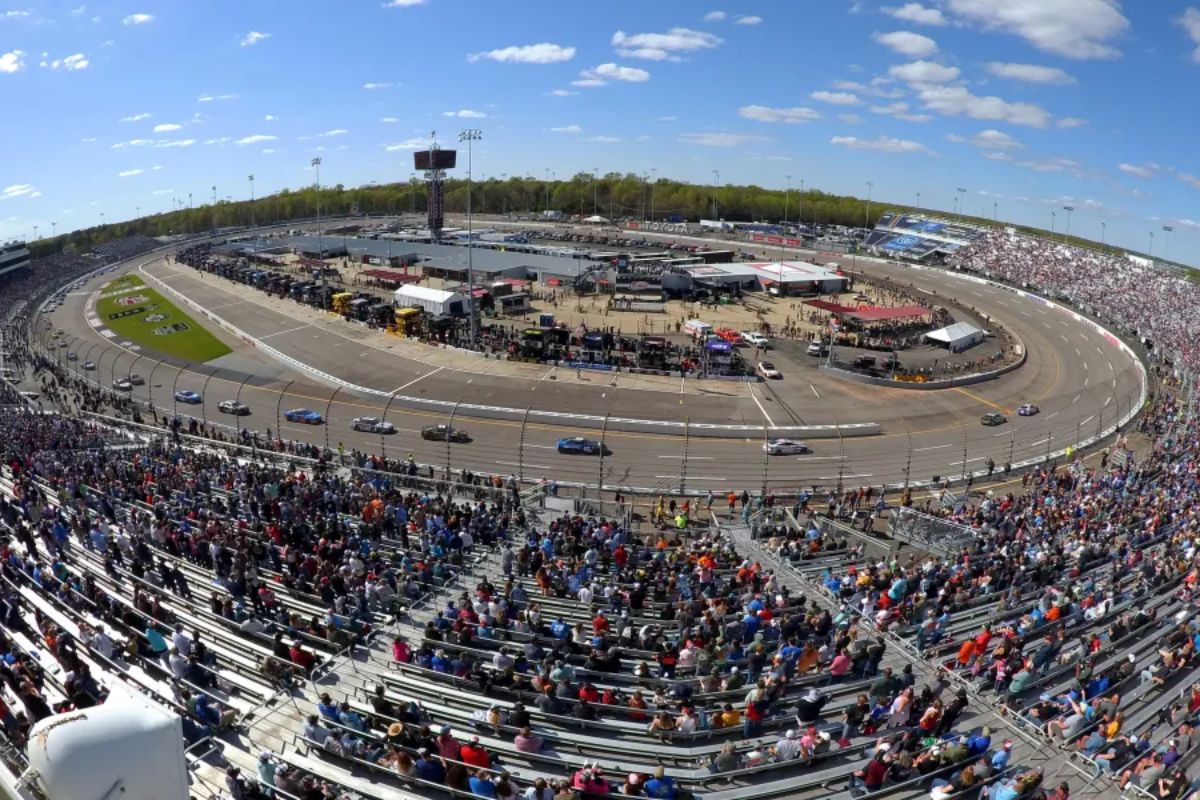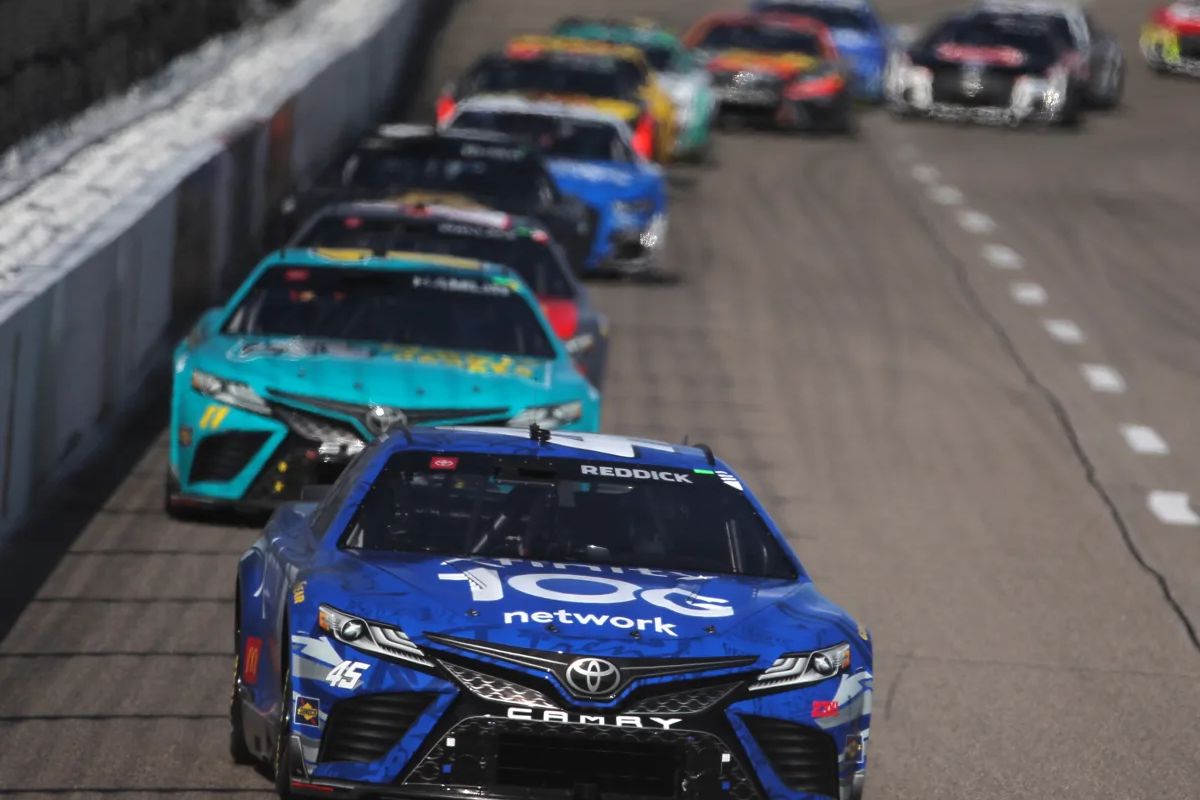Denny Hamlin Admits Craving for Undeserving Win: Denny Hamlin‘s recent commentary on Austin Dillon‘s controversial victory raises critical questions about the principles of meritocracy in NASCAR. Hamlin not only challenged the legitimacy of the race outcome but also spotlighted the broader implications of accountability and fairness within the sport. This incident serves as a catalyst for discussions on how aggressive tactics can overshadow genuine driver performance, prompting a reevaluation of strategies among competitors. As the playoff picture tightens, the consequences of such controversies could profoundly impact both the season’s outcome and the sport’s integrity moving forward.
Key Highlights
- Hamlin highlighted the need for race outcomes to reflect true performance, emphasizing integrity in the sport.
- The Richmond Raceway incident prompted Hamlin to reflect on the unpredictable nature of racing and the split-second decisions drivers face.
- Hamlin’s comments sparked debates among fans and analysts regarding fairness in NASCAR, particularly in light of aggressive strategies.
- The ongoing controversy may influence NASCAR’s future regulations and the dynamics among drivers as they reassess their racing strategies.
The Aftermath of the Richmond Raceway Incident
The aftermath of the Richmond Raceway incident has left a notable mark on the NASCAR community, prompting drivers, teams, and fans similarly to reflect on the implications of the dramatic finish at the Cook Out 400. The unexpected turns in the race, particularly Austin Dillon’s last-lap maneuvering, have ignited discussions about race strategy, driver skill, and the sometimes unpredictable nature of NASCAR racing.
In NASCAR, moments can shift in a heartbeat. Dillon’s calculated risk-taking and split-second decision-making exemplified the essence of racing, where outcomes often hinge on a driver’s ability to adapt to rapidly changing conditions.
As spectators processed the outcome, questions arose regarding the effectiveness of race strategies employed by other competitors who failed to capitalize on their positions.
Moreover, the incident has brought to light the broader implications of competition in NASCAR. In a sport where every point counts, the fallout from the Richmond incident reinforces the idea that success is often a product of both skill and timing.
As the NASCAR community continues to dissect the Cook Out 400, it becomes apparent that the lessons learned extend beyond the track. Understanding the intricacies of each race fosters a deeper appreciation for the sport, encouraging a more profound analysis of what it means to secure victory in this thrilling and unpredictable arena.
Denny Hamlin’s Perspective on the Incident
Denny Hamlin, a veteran of the NASCAR circuit, found himself at the epicenter of the Richmond Raceway incident, where the drama unfolded with intense unpredictability. Reflecting on the chaotic events that transpired, Hamlin expressed a mix of disbelief and frustration. He witnessed the theatrics unfold before his eyes, yet struggled to comprehend how he ended up in a position where, on his home turf, he faced the aftermath of a contentious situation.
With time to process the incident, Hamlin has been able to articulate his perspective more clearly. He recognizes the subtleties of the race and how the decisions made in the heat of the moment can lead to unforeseen consequences. His analysis highlights the importance of understanding not just the actions of the drivers involved but also the broader implications for the sport itself.
Denny Hamlin’s Detailed Account of the Wreck
Amid the swirling chaos of the Richmond Raceway, Denny Hamlin vividly recounted the moments leading up to the catastrophic wreck that would alter the race’s course. In a gripping narrative shared on Dale Jr.’s podcast, “Actions Detrimental,” Hamlin articulated the split-instant decisions that culminated in the incident involving Austin Dillon and Joey Logano.
Hamlin’s perspective offers a detailed understanding of the high-stakes environment of NASCAR racing. He observed Dillon’s relentless speed, noting, “I saw the 3 not decelerate… my eyes got really big.” This admission highlights the acute awareness required of drivers as they navigate the track, anticipating not just their own moves but also those of competitors.
“I saw the 3 not decelerate you know, I mean he just kept going. He obviously was not going to make a corner in a reasonable fashion. My eyes got really big. Cuz he’s carrying so much speed that regardless of whether he makes contact with 22 or not, he’s gonna have such a bad run off of, like a legit shot to get around him. So, my eyes got big and then when I saw that he was actually getting to 22.” – Hamlin
Hamlin’s realization that Dillon was unlikely to make the corner safely foreshadowed the impending chaos.
As the wreck unfolded, Hamlin’s emotions oscillated between anticipation and disbelief. “I mean we’re talking split seconds this is really quick,” he noted, capturing the frenetic pace of the race. The moment Logano’s car turned sideways, Hamlin experienced a brief flicker of hope, only to have it extinguished moments later as his vehicle was thrust into the wall.
“I mean we’re talking split seconds this is really quick. And I start to see the 22 turn sideways. And I am like what. this is it finally. I am gonna get one the other way. You know get one probably I didn’t deserve. Yeah, the track clears. And I come off the corner just the same as I always have. I think that 3 is in the smoke up there and next thing you know my car turns dead right into the fence. And just crushes. Crushes me, crushes the car and I see the checkered and were the first to get there.” – hamlin
His account emphasizes the unpredictable nature of racing, where milliseconds can dictate outcomes. The wreck not only derailed Hamlin’s race but also ignited a firestorm of controversy around the event, highlighting the intricate balance of skill and chance in NASCAR.
NASCAR’s Response and Penalties
Following a thorough investigation into the controversial wreck at Richmond Raceway, NASCAR has taken decisive action against Austin Dillon, stripping him of his playoff berth and imposing a 25-point penalty on both him and Richard Childress Racing. This strong response emphasizes NASCAR’s commitment to maintaining the integrity of the sport, especially in view of Denny Hamlin’s assertions that the wreck was premeditated.
The implications of this ruling extend beyond Dillon, affecting the broader competitive landscape. Key elements of NASCAR’s response include:
- Loss of Playoff Berth: By revoking Dillon’s playoff spot, NASCAR aims to deter future actions that compromise race integrity and guarantee all playoff contenders earn their place through merit.
- Point Penalties: The 25-point penalty serves as a notable deterrent, impacting both driver standings and the owner’s championship points, thereby highlighting accountability for teams.
- Logano’s Fine: In addition, Joey Logano faced a $50,000 fine due to aggressive behavior in the pit lane, which reflects NASCAR’s broader initiative to enforce sportsmanship and safety protocols.
As Richard Childress Racing prepares to appeal this decision, the outcome may set a precedent for how such controversies are managed in the future, reinforcing the need for ethical conduct in NASCAR.
The Playoff Picture with Three Races Left
With the playoff picture rapidly evolving and only three races remaining in the regular season, the stakes have never been higher for drivers vying for a coveted spot in the postseason. The recent removal of Austin Dillon’s provisional spot has heightened the urgency among competitors, particularly those on the cusp of qualification. Currently, 12 drivers are locked into the playoffs, leaving only four spots available for the remaining contenders.
Chris Buescher, holding the 16th and final playoff position, is tied with Ross Chastain but leads on tiebreakers due to better finishes. Wallace’s precarious three-point edge over Buescher intensifies the strain on his No. 23 Toyota team.
Gibbs, despite his 18-point cushion, remains vulnerable, as a single stage could shift the dynamics dramatically. Each point carries immense weight, making these final three races not just a test of skill but a battle of strategy and resilience. As the playoff race tightens, the question looms: who will emerge victorious and claim their place in the postseason?
News in Brief: Denny Hamlin Admits Craving for Undeserving Win
The controversy surrounding Austin Dillon’s victory has highlighted substantial concerns regarding fairness and accountability within NASCAR. Denny Hamlin’s critique emphasizes the tension between skillful racing and the unpredictable nature of the sport, prompting a reevaluation of aggressive tactics among drivers. As the playoff picture narrows with only three races remaining, the implications of this incident may influence both strategy and decision-making, shaping the future landscape of competitive racing and the integrity of its outcomes.
ALSO READ: Denny Hamlin’s Epic Reply to Richard Childress Racing After NASCAR Hits it with Tough Penalty



